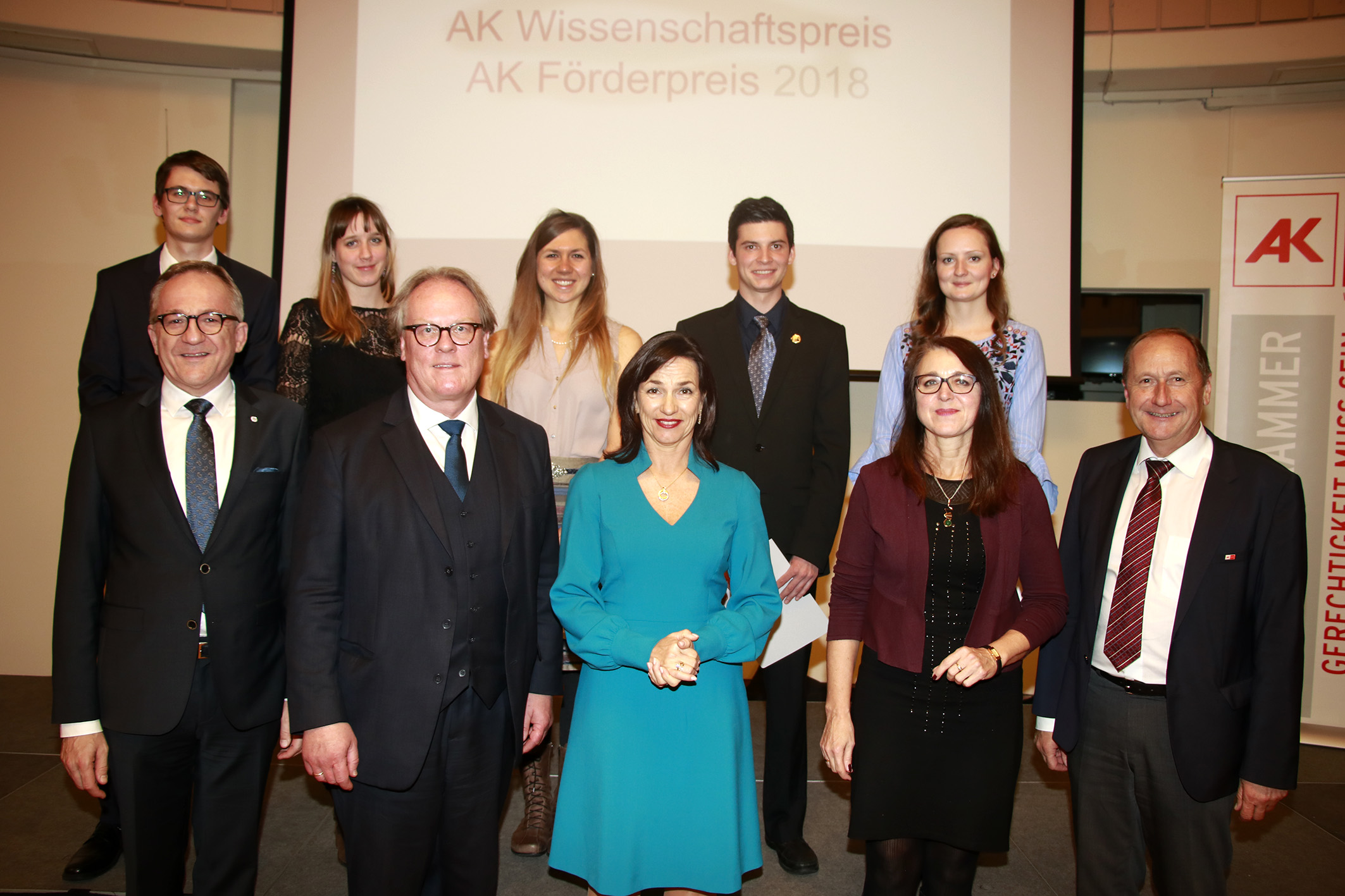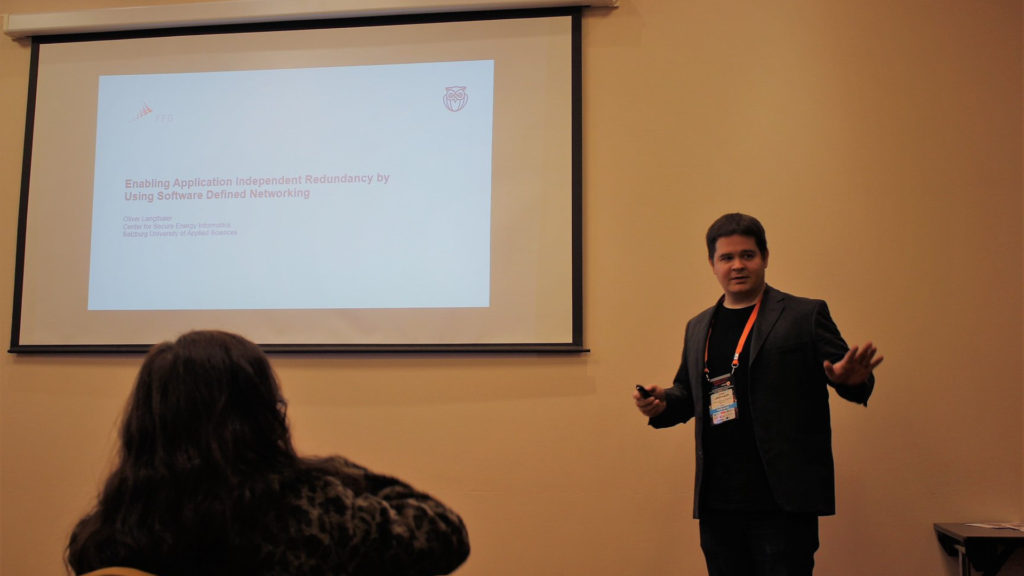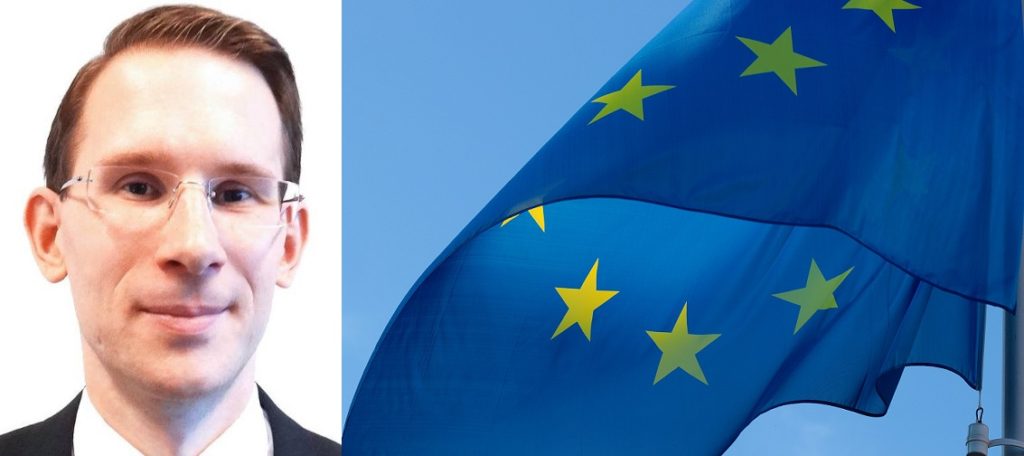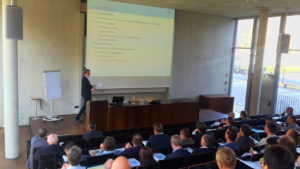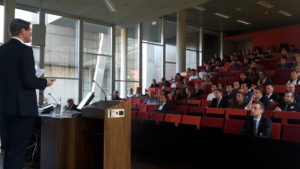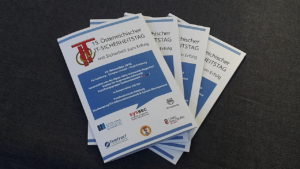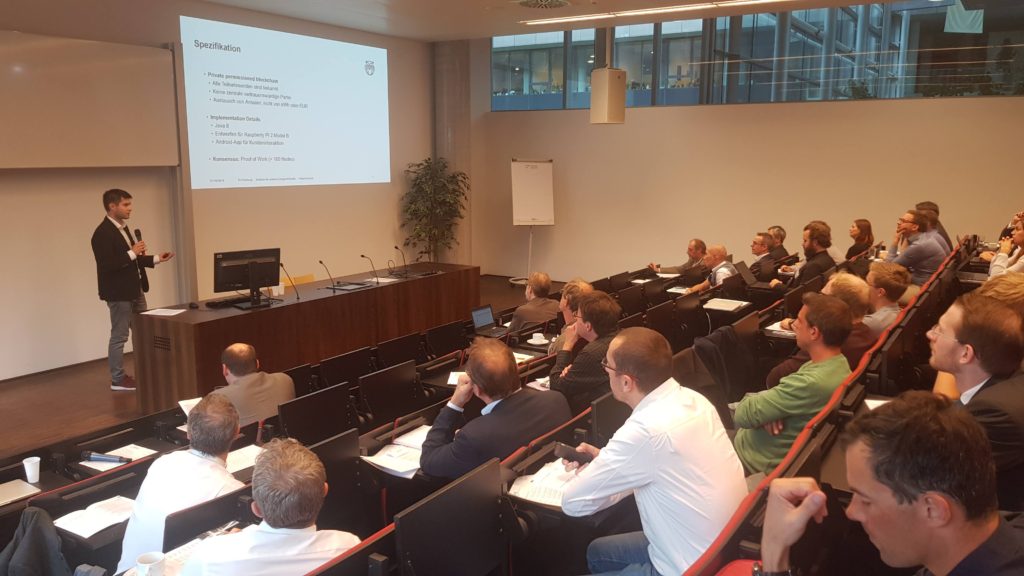Mid of October a delegation of CSE-researchers travelled to Oldenburg to participate in the annual DACH+ Conference on Energy Informatics. Dominik Engel and Günther Eibl contributed with a keynote and a paper presentation, respectively.
In his keynote, Dominik Engel, head of the CSE, addressed the question if cyber defense of future energy systems is a lost cause, as the systems are perceived as too complex to be secured properly. He reviewed current threats and trends in cyber security and discussed the state of the art in counter-measures, including new approaches such as blockchain technology.
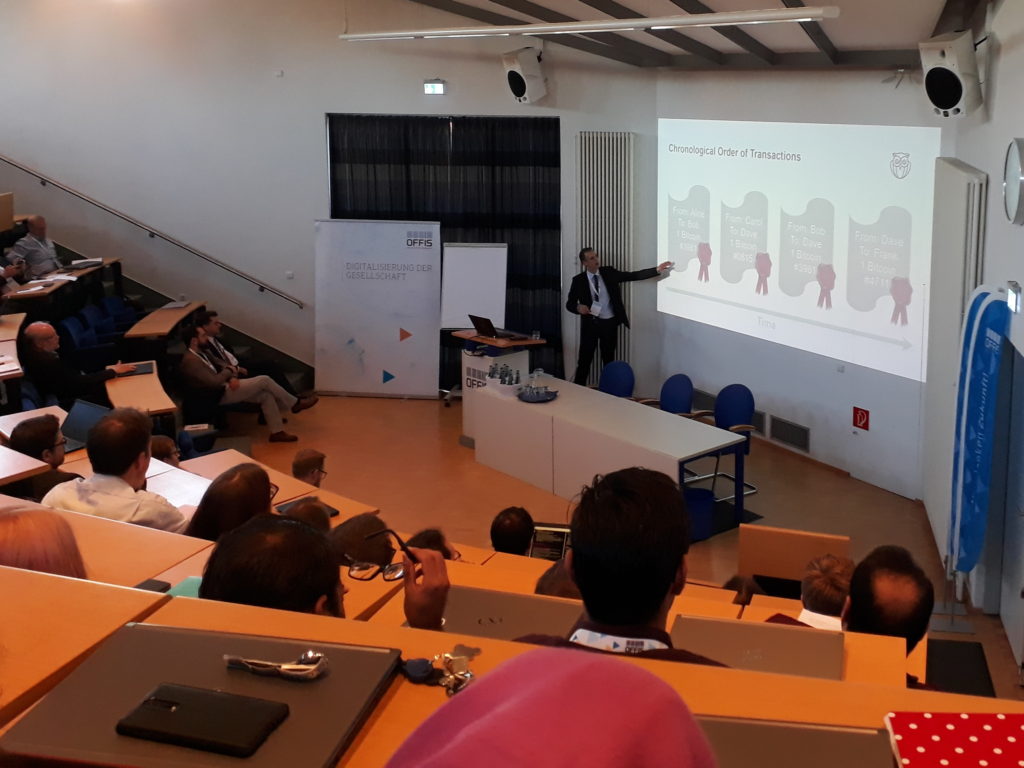
Dominik Engel held a keynote on whether cyber defense of future energy systems is a lost cause
Günther Eibl nominated for best paper award
Together with Kaibin Bao and Hartmut Schmeck from Karlsruhe Institute of Technology as well as Daniel Bernau and Philip Grassal from SAP, CSE researcher Prof. (FH) Dr. Günther Eibl published the paper The Influence of Differential Privacy on Short Term Electric Load Forecasting which was presented at the conference and among the top four shortlisted for the best paper award.
In this paper they evaluated whether using smart metering data provides an actual benefit for the energy provider to refine the forecast of domestic loads of their customers while preserving their privacy. They examined a methodology on how to collect the necessary data in smaller zones to reach more accurate forecasts for the bigger balancing group without weakening the data privacy protection. This was done by applying the differential privacy technology, in which privacy is preserved by adding an accurately defined noise to each small zone. Results showed that the three well-documented load forecasting approaches that were used are variously susceptible to noise. For one forecasting approach, however, reasonable utility was reached while providing a strong privacy guarantee.
-
![[PDF]](https://www.en-trust.at/wp-content/plugins/papercite/img/pdf.png)
![[DOI]](https://www.en-trust.at/wp-content/plugins/papercite/img/external.png) G. Eibl, K. Bao, P. Grassal, D. Bernau, and H. Schmeck, “The influence of differential privacy on short term electric load forecasting,” Energy Informatics, vol. 1, iss. 1, p. 93–113, 2018.
G. Eibl, K. Bao, P. Grassal, D. Bernau, and H. Schmeck, “The influence of differential privacy on short term electric load forecasting,” Energy Informatics, vol. 1, iss. 1, p. 93–113, 2018.
[Bibtex]
@Article{Eibl18b,
author={Eibl, G{\"u}nther
and Bao, Kaibin
and Grassal, Philip-William
and Bernau, Daniel
and Schmeck, Hartmut},
title= {The influence of differential privacy on short term electric load forecasting},
journal= {Energy Informatics},
year= {2018},
month= {Oct},
day={10},
volume={1},
number={1},
pages={93--113},
abstract={There has been a large number of contributions on privacy-preserving smart metering with Differential Privacy, addressing questions from actual enforcement at the smart meter to billing at the energy provider. However, exploitation is mostly limited to application of cryptographic security means between smart meters and energy providers. We illustrate along the use case of privacy preserving load forecasting that Differential Privacy is indeed a valuable addition that unlocks novel information flows for optimization. We show that (i) there are large differences in utility along three selected forecasting methods, (ii) energy providers can enjoy good utility especially under the linear regression benchmark model, and (iii) households can participate in privacy preserving load forecasting with an individual membership inference risk <60{\%}, only 10{\%} over random guessing.},
issn={2520-8942},
doi={10.1186/s42162-018-0025-3},
url={https://doi.org/10.1186/s42162-018-0025-3},
pdf = {https://energyinformatics.springeropen.com/track/pdf/10.1186/s42162-018-0025-3},
}
In 2019, the renowned DACH+ Energy Informatics conference will take place at Salzburg University of Applied Sciences (SUAS).
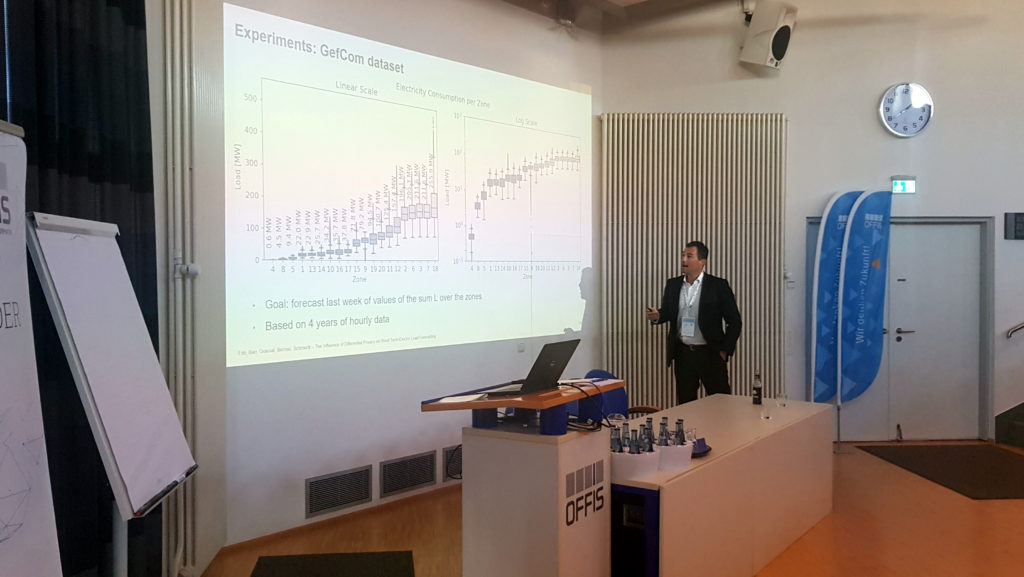
Günther Eibl presenting his paper shortlisted for the best paper award
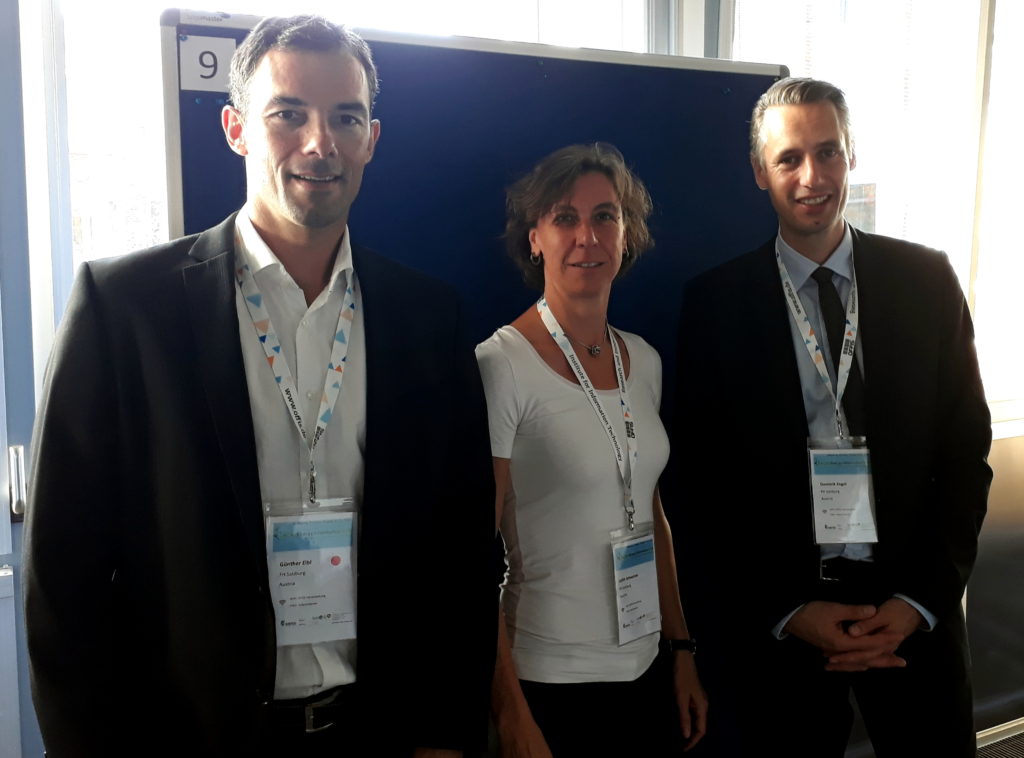
The CSE delegation: Günther Eibl, Judith Schwarzer and Dominik Engel (left to right)

![[PDF]](https://www.en-trust.at/wp-content/plugins/papercite/img/pdf.png)
![[DOI]](https://www.en-trust.at/wp-content/plugins/papercite/img/external.png) A. Unterweger, S. Taheri-Boshrooyeh, G. Eibl, F. Knirsch, A. Küpçü, and D. Engel, “Understanding Game-Based Privacy Proofs for Energy Consumption Aggregation Protocols,” IEEE Transactions on Smart Grid, vol. 10, iss. 5, p. 5514–5523, 2019.
A. Unterweger, S. Taheri-Boshrooyeh, G. Eibl, F. Knirsch, A. Küpçü, and D. Engel, “Understanding Game-Based Privacy Proofs for Energy Consumption Aggregation Protocols,” IEEE Transactions on Smart Grid, vol. 10, iss. 5, p. 5514–5523, 2019. 